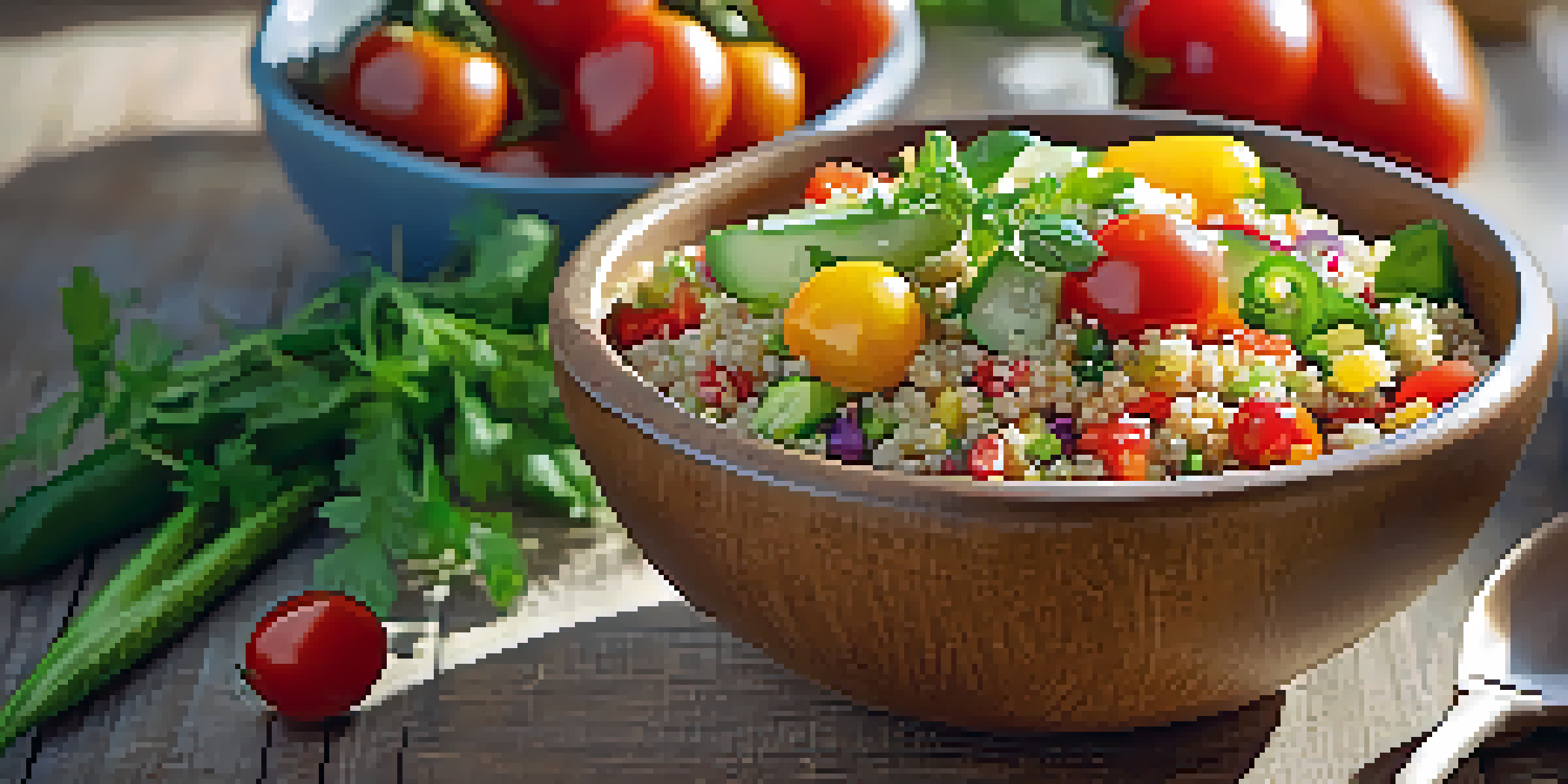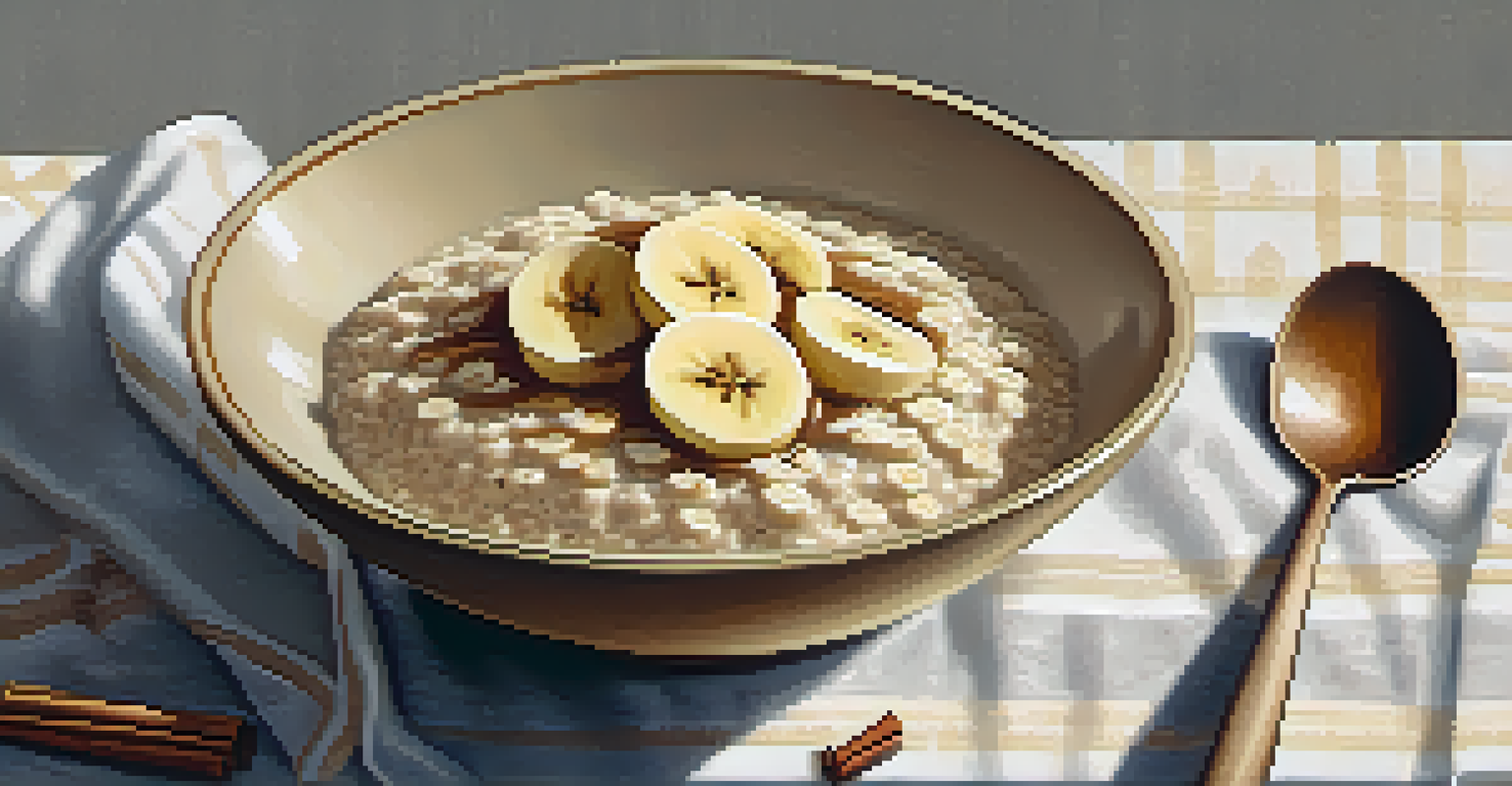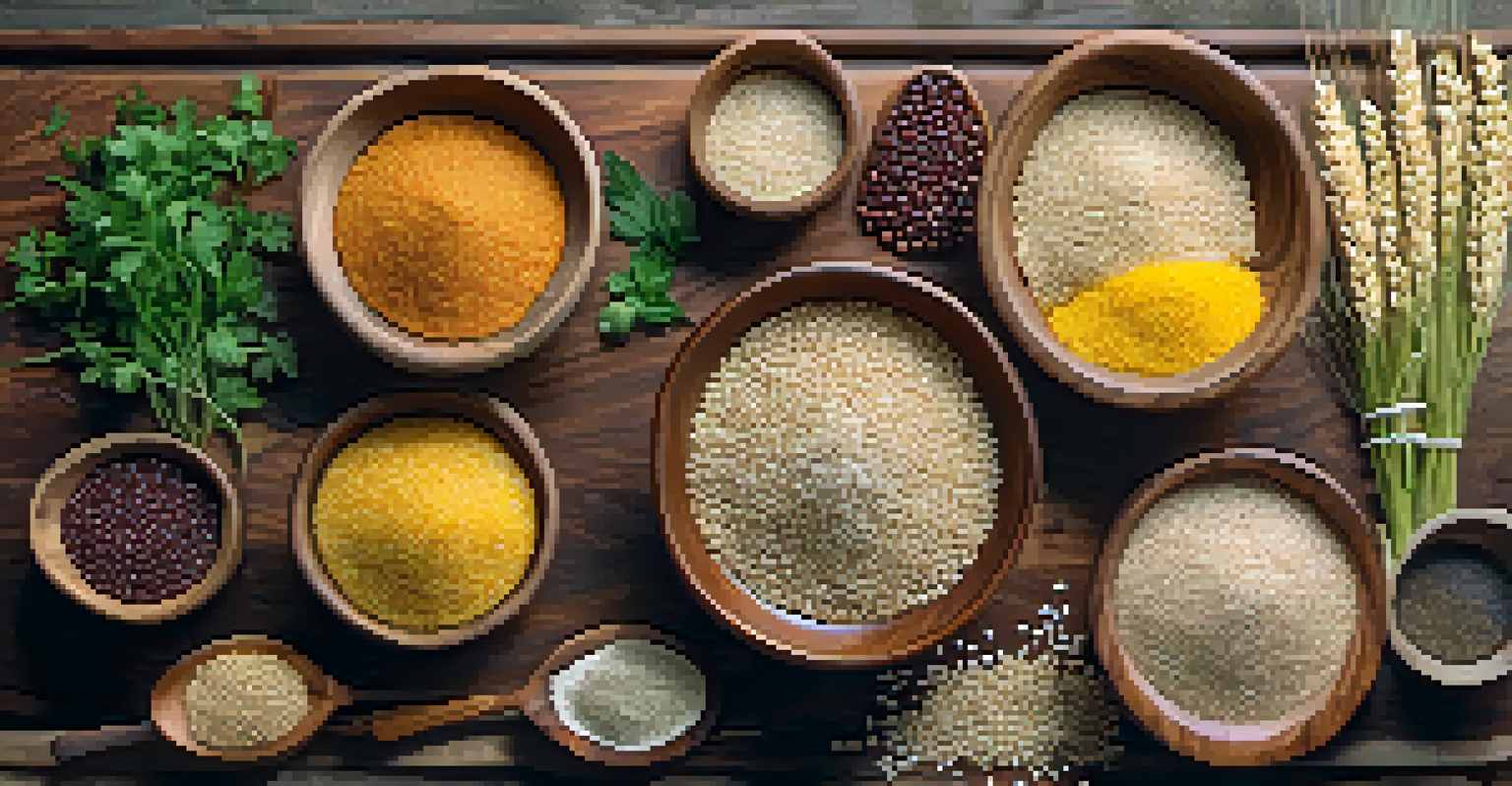The Nutritional Benefits of Grains for Vegetarian Lifestyles

Grains: A Vital Source of Energy for Vegetarians
Grains are often the backbone of a vegetarian diet, providing a rich source of carbohydrates. These carbohydrates are essential for energy, fueling everything from your morning jog to your afternoon meetings. When you choose whole grains, like brown rice or quinoa, you're not just getting energy; you're also supporting sustained energy levels throughout the day.
Let food be thy medicine and medicine be thy food.
Incorporating grains into your meals can help keep your energy stable, preventing the dreaded mid-afternoon slump. Think of grains as the reliable friend who always has your back when you need a boost. So whether it’s a hearty bowl of oatmeal or a quinoa salad, grains can power your day.
Moreover, grains are incredibly versatile. You can enjoy them in various forms, from breakfast cereals to side dishes. This adaptability makes it easy to include grains in every meal, ensuring you never run out of delicious options.
Rich in Fiber: How Grains Support Digestive Health
One of the standout benefits of grains is their fiber content. Fiber is crucial for maintaining a healthy digestive system, helping to regulate bowel movements and prevent constipation. When you consume whole grains, you're boosting your fiber intake significantly, which is beneficial for overall gut health.

Imagine fiber as a broom sweeping through your intestines, clearing away waste and keeping everything running smoothly. This can lead to a healthier gut microbiome, which is linked to numerous health benefits, including better immunity and even improved mood.
Grains Provide Essential Energy
Whole grains like brown rice and quinoa are vital for maintaining energy levels throughout the day.
Additionally, a high-fiber diet can aid in weight management, as it often leads to increased feelings of fullness. Including grains like barley, farro, or bulgur can help you feel satisfied longer, making it easier to stick to a balanced vegetarian lifestyle.
Essential Nutrients: Grains Packed with Vitamins and Minerals
Grains are not just about carbohydrates; they also come loaded with essential vitamins and minerals. For instance, whole grains are excellent sources of B vitamins, which play a vital role in energy production and brain health. Additionally, minerals like iron and magnesium found in grains are crucial for various bodily functions.
You are what you eat, so don’t be fast, cheap, easy, or fake.
Consider grains as a treasure chest of nutrients waiting to support your health. For vegetarians, who may need to be more mindful of certain nutrients, grains can fill in those gaps. For example, iron from grains is particularly important since it helps transport oxygen throughout your body.
Including a variety of grains in your diet can help ensure you’re getting a broad spectrum of nutrients. Whether it's the selenium in wheat or the zinc in oats, each grain contributes to your overall nutritional profile.
Protein Power: How Grains Complement Vegetarian Diets
While grains are primarily known for their carbohydrate content, they also contain protein, albeit in smaller amounts than animal products. However, when combined with legumes, nuts, or seeds, grains can provide a full spectrum of essential amino acids. This is especially important for vegetarians looking to meet their protein needs.
Think of grains and legumes as the dynamic duo of nutrition, working together to create balanced meals. For example, pairing brown rice with black beans not only enhances the flavor but also boosts the protein quality of your dish. This combination can be both satisfying and nutritious.
Fiber Supports Digestive Health
The high fiber content in whole grains promotes a healthy digestive system and helps regulate bowel movements.
Moreover, incorporating protein-rich grains like quinoa or amaranth can further enhance your protein intake. These pseudo-grains contain all nine essential amino acids, making them a fantastic addition to a vegetarian diet.
Heart Health: The Role of Grains in Reducing Cholesterol
Heart disease remains a leading health concern, but incorporating whole grains into your vegetarian diet can help mitigate this risk. Whole grains are rich in soluble fiber, which can help lower bad cholesterol levels. This is crucial for maintaining heart health and reducing the risk of cardiovascular diseases.
Picture whole grains as your heart's best ally, working quietly to keep your cholesterol in check. Foods like oats and barley have been shown to have a particularly positive impact on heart health, making them great choices for any meal.
In addition to fiber, whole grains contain antioxidants and anti-inflammatory properties that further support heart health. By choosing whole grains over refined options, you’re not just making a meal choice; you're investing in long-term well-being.
Gluten-Free Grains: Options for Sensitive Individuals
For those with gluten sensitivities, the good news is that there are plenty of gluten-free grains available. Options like quinoa, millet, and brown rice can provide the same nutritional benefits without the discomfort. This inclusion ensures that everyone, regardless of dietary restrictions, can enjoy the benefits of grains.
Imagine gluten-free grains as the inclusive friends who ensure no one is left out at the dinner table. They allow individuals with celiac disease or gluten intolerance to enjoy hearty meals without the worry of adverse reactions.
Nutrient-Rich for Vegetarian Diets
Grains are packed with essential vitamins and minerals, making them a crucial part of a balanced vegetarian diet.
By diversifying your grain choices, you can maintain a balanced diet while accommodating specific dietary needs. With so many delicious gluten-free grains available, your meals can remain varied and satisfying.
Cooking with Grains: Tips for Incorporating Them into Meals
Incorporating grains into your meals doesn't have to be complicated. Start by substituting white rice with brown rice or quinoa in your favorite dishes. This simple switch adds nutrition without sacrificing flavor, making it an easy way to enhance your meals.
Experimenting with different grains can also add variety to your cooking. Consider trying farro in salads or polenta as a base for your favorite toppings. The texture and taste of each grain can elevate a dish, making it more exciting.

Additionally, cooking in bulk can save time during busy weeks. Prepare a large batch of your favorite grain and store it in the fridge. This way, you have a quick and nutritious option ready to go for salads, stir-fries, or bowls.